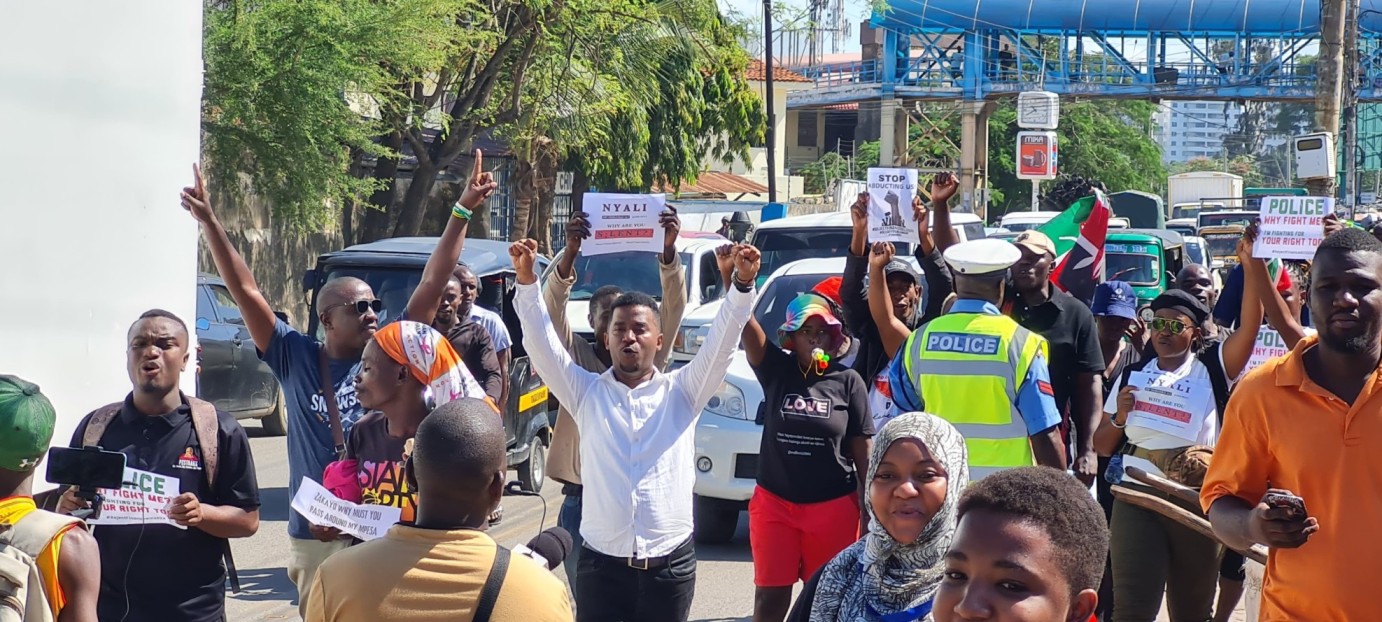Opinion: Finance Bill crisis heralds Kenya's path to new reforms

The Finance Bill met fierce opposition from various sectors of Kenyan society and has sparked what can only be described as an epic debacle.
Kenya stands at a critical juncture, grappling with a political and economic crisis that has laid bare the challenges facing President William Ruto's administration. At the heart of this turmoil lies the controversial Finance Bill, a piece of legislation that has ignited widespread public discontent and become a symbol of broader dissatisfaction with the government's policies.
The Finance Bill met fierce opposition from various sectors of Kenyan society and has sparked what can only be described as an epic debacle. This legislative misstep, coupled with growing unrest across the country, serves as a stark wake-up call for the president and his team.
More To Read
- Speaker Kingi submits list of absentee landlord farms to Ruto for squatter resettlement
- President Ruto leads nation in mourning former Lugari MP Cyrus Jirongo
- Ruto honours Benni McCarthy, Harriet Okach for elevating Kenya’s sports profile
- JKIA–ABC road corridor to get new look as Ruto revives city roadworks
- Ruto honours Kristina Kenyatta, Dorcas Oduor, William Kabogo with EGH awards
- Ruto raises research funding to 2 per cent of GDP in bid to expand digital economy
The public's vehement reaction reveals a deep-seated frustration with the government's approach to economic management and fiscal policy, painting a picture of an administration seemingly disconnected from the everyday realities of ordinary citizens.
This perception is particularly damaging for a government that rode to power on promises of economic empowerment and grassroots development. Yet, amidst this crisis lies an opportunity for President Ruto to reassess and potentially reshape his administration's trajectory. This moment, fraught with tension and uncertainty, also holds the potential for correction, rebirth, and a new direction. The key question now is whether the president will seize this chance to address the underlying issues that have led to the current impasse.
To navigate this challenging terrain, President Ruto must embark on a thorough and uncompromising examination of the processes that led to the drafting and promotion of the controversial Finance Bill. This internal investigation should focus on how the economic team formulated and approved a Bill widely perceived as detrimental to the interests of ordinary Kenyans, and second, why the president was apparently not fully informed or apprised of the extent of public opposition to the Bill.
These questions strike at the heart of decision-making processes within the highest levels of government. They suggest potential breakdowns in communication, flaws in policy formulation, or possibly a fundamental disconnect between the administration and the public pulse. Addressing these issues is crucial not only for resolving the current crisis but also for preventing similar missteps in the future.
The intensity of public opposition to the Finance Bill has drawn comparisons to historical instances of governmental detachment, evoking images of regimes insensitive to the struggles of their citizens. Such comparisons underscore the severity of the public's disillusionment and the urgent need for the government to demonstrate that it is listening and responding to the people's concerns.
Beyond the Finance Bill, this moment of crisis also illuminates broader challenges facing Kenya, particularly corruption and governmental inefficiency. There is a palpable desire among Kenyans for meaningful reform and accountability within the political system. Tackling corruption is no small task, but it is essential for rebuilding public trust and improving the government's effectiveness. It will require not only strong leadership from President Ruto but also a commitment to transparency, strengthened institutions, and difficult political decisions that may ruffle feathers within the establishment.
The current situation also highlights the importance of effective communication between the government and its citizens. The apparent surprise at the level of public opposition to the Finance Bill suggests a need for better mechanisms to gauge public opinion and incorporate it into the policy-making process. Improved dialogue could help bridge the gap between the government's intentions and the public's expectations, potentially averting future crises.
As Kenya navigates this challenging period, the role of civil society becomes increasingly important. The voices of engaged citizens and community leaders serve as a crucial check on government power and provide valuable feedback that, if heeded, can lead to more responsive and effective governance.
For President Ruto, the path forward is clear, if not easy. He must demonstrate a willingness to listen, learn, and adapt. This may involve revisiting some of his administration's key policies, reshuffling his team, and implementing more robust systems for policy development and public engagement. The president's ability to rise to this challenge will likely define his legacy and shape Kenya's trajectory in the coming years.
The coming weeks and months will be crucial in determining whether this opportunity is seized or squandered. For the sake of Kenya's stability and prosperity, it is imperative that the government takes this wake-up call seriously and embarks on a path of genuine reform and renewed commitment to public service.
The eyes of the nation, and indeed the world, will be watching to see how President Ruto and his team navigate this critical juncture in Kenya's political journey. The decisions made now will echo through the corridors of power and into the lives of millions of Kenyans, shaping the nation's future for years to come.
The writer is a public policy specialist and a management consultant
Top Stories Today














































